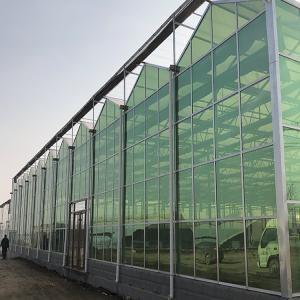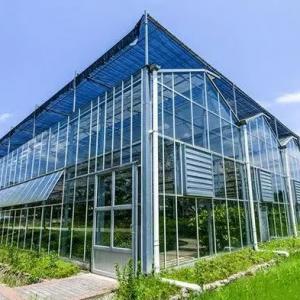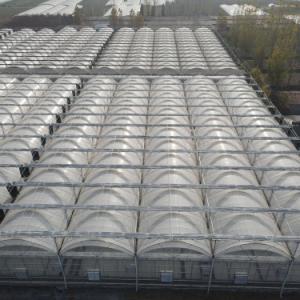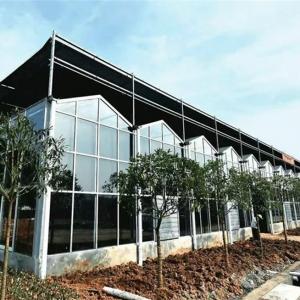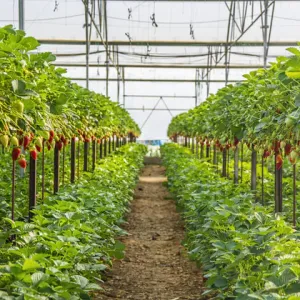Cultivating Fresh Products Anywhere with Shipping Container Farms
Shipping container farms, also known as containerized farms or vertical farms, are modular farming units constructed from repurposed shipping containers. These containers are typically 20 or 40 feet in length and are transformed into fully functional growing environments equipped with all the necessary components for plant growth. This includes lighting systems, irrigation systems, climate control mechanisms, and monitoring tools.
Advantages of Shipping Container Farms
Accessibility and Location Flexibility
One of the key advantages of shipping container farms is their ability to overcome geographical limitations. These farms can be established in areas where traditional farming methods are impractical or impossible. Whether it's a rooftop in a crowded city or a remote location with limited access to fertile land, shipping container farms offer a solution for cultivating fresh produce regardless of the surroundings.
Climate Control and Year-Round Cultivation
Shipping container farms provide a controlled environment that allows farmers to optimize growing conditions for specific crops. By adjusting factors such as temperature, humidity, and light intensity, farmers can create the ideal conditions for plant growth. This enables year-round cultivation, eliminating the dependency on seasonal changes and geographical climates.
Water Efficiency and Sustainability
Water scarcity is a pressing concern in many parts of the world, making efficient water usage crucial in agriculture. Shipping container farms continue to provide a sustainable solution to this challenge. These farms incorporate advanced irrigation systems that minimize water wastage through precise and targeted watering techniques. By utilizing hydroponic or aeroponic methods, where plants are grown in nutrient-rich water or misted air instead of soil, shipping container farms can reduce water consumption by up to 90% compared to traditional farming methods. This increased water efficiency not only conserves this valuable resource but also lowers the overall environmental impact of farming.
Reduced Carbon Footprint
Traditional agriculture often involves long-distance transportation of produce from farms to consumers, resulting in significant carbon emissions. Shipping container farms offer a localized approach to food production, bringing the farm closer to the consumer. By minimizing transportation distances and reducing the need for refrigeration, these farms contribute to a lower carbon footprint. Additionally, the use of renewable energy sources, such as solar panels, further enhances the sustainability of shipping container farms.
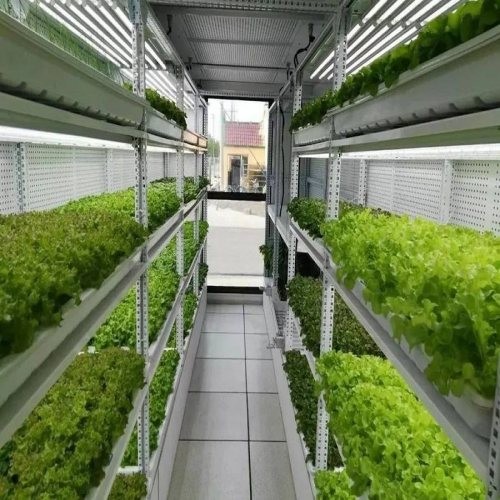
Implementing a Shipping Container Farm
Implementing a shipping container farm requires careful planning and consideration of various factors. Here are some key steps involved in setting up a successful containerized farm:
Choosing the Right Container
Selecting the appropriate shipping container is the first step in establishing a container farm. Factors to consider include size, condition, and insulation properties. It is essential to ensure that the container is structurally sound, watertight, and suitable for modification.
Lighting and Irrigation Systems
Proper lighting and irrigation systems are crucial for plant growth in a controlled environment. LED lights are commonly used in shipping container farms due to their energy efficiency and ability to provide specific light spectra for different growth stages. Irrigation systems can range from simple drip irrigation to advanced hydroponic or aeroponic setups, depending on the crops being cultivated.
Crop Selection and Growing Techniques
Choosing the right crops and implementing appropriate growing techniques are essential for the success of a shipping container farm. Factors such as crop yield, nutritional value, and market demand should be considered. Vertical farming methods, such as using stacked shelves or vertical towers, maximize space utilization and allow for larger crop yields.
Monitoring and Automation
Monitoring the environmental conditions within the shipping container farm is critical for maintaining optimal growing conditions. Implementing sensors and automation systems can help track temperature, humidity, nutrient levels, and other vital parameters. Automated systems can adjust the environment accordingly, ensuring consistent crop growth and minimizing manual intervention.
Overall, shipping container farms have opened up new possibilities in agriculture, allowing fresh produce to be cultivated anywhere, irrespective of geographical constraints. These innovative farming systems offer numerous advantages, including accessibility, year-round cultivation, water efficiency, and reduced carbon footprint. Implementing a container farm involves careful planning and consideration of factors such as container selection, lighting, irrigation, and crop selection.
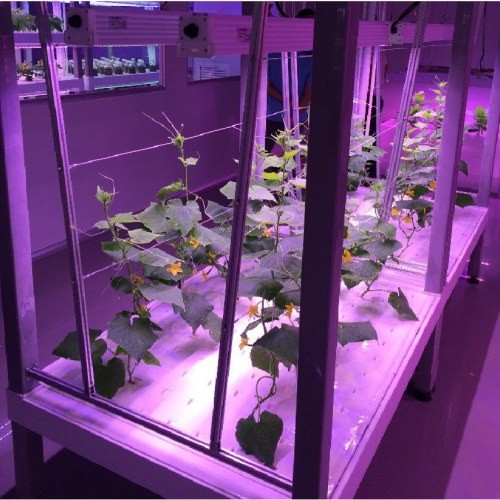
FAQs
Q1. Are shipping container farms cost-effective?
A. Shipping container farms can be cost-effective due to their efficient use of resources, reduced transportation costs, and year-round cultivation capabilities.
Q2. Can shipping container farms grow all types of crops?
A. Shipping container farms can grow a wide variety of crops, including leafy greens, herbs, small fruits, and some root vegetables. However, certain crops with extensive root systems or those requiring large amounts of space may be less suitable.
Q3. How do shipping container farms ensure plant nutrition?
A. Nutrient solutions are used in hydroponic or aeroponic systems to provide plants with essential minerals. These solutions can be adjusted and monitored to meet the specific nutritional requirements of different crops.
Q4. Are shipping container farms environmentally friendly?
A. Shipping container farms have several environmentally friendly aspects, such as reduced water usage, minimized carbon footprint through localized production, and the potential use of renewable energy sources.
Q5. Can shipping container farms be used in rural areas?
A. Yes, shipping container farms can be used in rural areas to enhance food production and address agricultural challenges, such as limited arable land or harsh climates.
